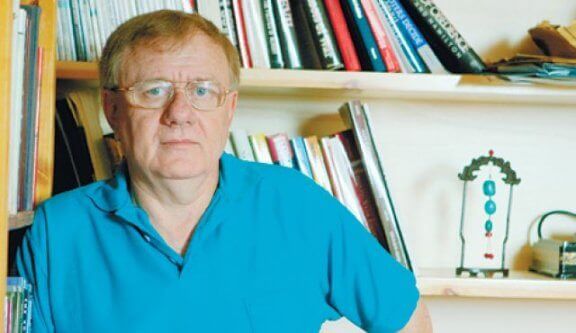Daniel Bar-Tal is an Israeli researcher born in Tajikistan known for studying intractable conflicts.
He spent his childhood in Poland and then emigrated to Israel. Bar-Tal completed his studies at Tel Aviv University and received his Ph. D. from the University of Pittsburgh in the United States. Then returned to Israel, where he developed his most important research.
- Among its merits.
- We emphasize that Bar-Tal was director of the Walter Lebach Research Institute for the coexistence of Jews and Arabs through education.
- And president of the International Society of Political Psychology.
We cannot forget that he was editor-in-chief of the Palestine Israel newspaper, which received numerous awards for its research on peace and conflict and its relationship with psychology.
Although his work is extensive, some of his contributions are distinguished by their importance. First, his research has focused mainly on the socio-psychological foundations of intractable conflicts.
Second, paradoxical thinking is distinguished by its relevance. Finally, more recently, his work has focused on self-nsorship.
Intractable conflicts were Daniel Bar-Tal’s main research topic, these conflicts or wars that continue over time and whose solution seems far away, characteristics that cause a lot of wear and tear in those who live immersed in this situation.
These people eventually develop mental structures that allow them to reduce the consequences of conflict in their lives. These structures consist of a collective memory that describes the beginning, progression, and major events that occurred during the conflict.
It would be an organized philosophy or vision of the world that allows them to understand the context of conflict and guide their behavior, and they also tend to express particular emotions, that is, collective emotional orientation.
“How long will the world be prepared to endure this spectacle of meaningless cruelty?Bertrand Russell?
A paradox is a strange idea as opposed to what most people consider true. Therefore, according to Bar-Tal’s research, there is what is called paradoxical thinking. This kind of paradoxical thinking is to explain how absurd some ideas seem to be.
In this way, if we ridicule our beliefs using paradoxes that expose them as irrational and meaningless, we can question and even modify them.
Bar-Tal and his team have shown that the power of paradoxical thinking can reduce beliefs and attitudes. Study participants expressed less support for aggressive policies, as well as greater support for reconciliation policies.
By reducing people’s ideas to absurdity, the sympathy that existed among some people in Israel has been reduced.
“Jerusalem is a port city on the coast of eternity. “Yehuda Amichai?
Self-censing is the act of intentionally and voluntarily concealing information from others in the absence of formal obstacles, that is, when we know something and believe it is true, but we consciously hide it.
While human beings tend to share, communicate and disseminate information, we also tend to maintain a positive image of our group, so if we get information that could damage your image, we’re likely to self-censor it.
According to Bar-Tal and her research team, the context of the group, individual factors, the type of information and circumstantial factors will influence self-censorship, in this way people calculate the costs and benefits of each decision and face the dilemma that Presents itself. .
The outcome of these personal considerations will determine whether the person discloses the information, to whom, whether he discloses only part or all, or whether he practices self-censity.
In short, Daniel Bar-Tal has dedicated his life to research. In particular, investigating what he calls intractable conflicts.
His contributions include contributions to the mental structure of those living in conflict, the power of paradoxical thinking to reduce extreme attitudes, and the tendency to self-care.
All this without going into the many interventions he has made to seek peace in the Israeli-Palestinian conflict.

